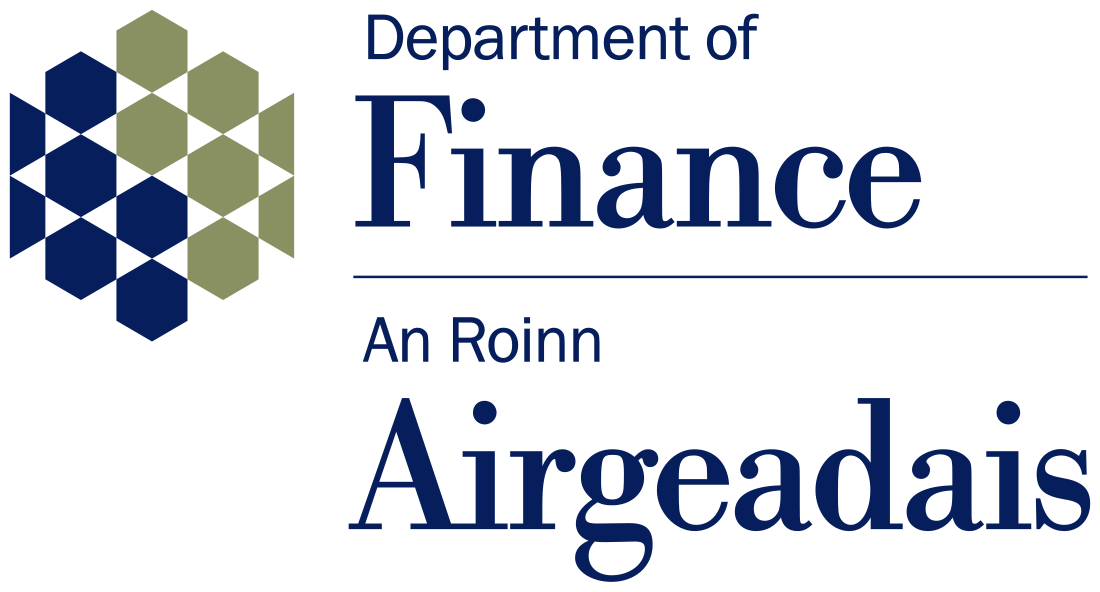Top Qs
Timeline
Chat
Perspective
Department of Finance (Northern Ireland)
Northern Irish government department From Wikipedia, the free encyclopedia
Remove ads
The Department of Finance (DoF, Irish: An Roinn Airgeadais,[5] Ulster-Scots: Männystrie o Siller[6]) is a devolved Northern Ireland government department in the Northern Ireland Executive. The minister with overall responsibility for the department is the Minister for Finance. The incumbent Minister is John O'Dowd.
Remove ads
The department was previously called the Department of Finance and Personnel (DFP) before its name change on 9 May 2016.
Remove ads
Aim
DoF's overall aim is to help the Northern Ireland Executive "secure the most appropriate and effective use of resources and services for the benefit of the community".[7]
Responsibilities
The department is responsible for the following policy areas:
- finance
- the Northern Ireland Civil Service
- land and property
- building regulation
- procurement
- civil law reform
- civil registration
Some financial matters are reserved to Westminster and are therefore not devolved: [8]
In addition, some matters are excepted and were not intended for devolution:[9]
- taxation
- currency
DoF's main counterparts in the United Kingdom Government are:
- HM Treasury;[10]
- the Cabinet Office (on civil service matters);[11]
- the Ministry of Justice (on civil law reform);[12]
- the Ministry of Housing, Communities and Local Government (on building regulation);[13]
- HM Land Registry (on land registration).[14]
In the Irish Government, the main counterparts are:
- the Department of Finance;[15]
- the Department of Public Expenditure, National Development Plan Delivery and Reform;
- the Department of Justice (on civil law reform and land registration);[16][17]
- the Department of Housing, Local Government and Heritage (on building regulation).[18]
Remove ads
Lay Observer for Northern Ireland
The Lay Observer for Northern Ireland is an independent, special agency of the Department of Finance in Northern Ireland.[19][20]
History
Summarize
Perspective
A Ministry of Finance was established on the formation of Northern Ireland in June 1921. A finance ministry also existed in the 1974 Northern Ireland Executive and became known as the Department of Finance and Personnel under direct rule.
Following a referendum on the Belfast Agreement on 23 May 1998 and the granting of royal assent to the Northern Ireland Act 1998 on 19 November 1998, a Northern Ireland Assembly and Northern Ireland Executive were established by the United Kingdom Government under Prime Minister Tony Blair. The process was known as devolution and was set up to return devolved legislative powers to Northern Ireland. DFP is therefore one of six direct rule Northern Ireland departments which continued in existence after devolution in December 1999 by the Northern Ireland Act 1998 and The Departments (Northern Ireland) Order 1999.
A devolved minister first took office on 2 December 1999. Devolution was suspended for four periods, during which the department came under the responsibility of direct rule ministers from the Northern Ireland Office:
- between 12 February 2000[21] and 30 May 2000;[22]
- on 11 August 2001;[23][24]
- on 22 September 2001;[25][26]
- between 15 October 2002[27] and 8 May 2007.[28]
Since 8 May 2007, devolution has operated without interruption.
Remove ads
Ministers of Finance
Summarize
Perspective
Direct rule ministers
During the periods of suspension, the following ministers of the Northern Ireland Office were responsible for the department:
- Adam Ingram (2000)
- Ian Pearson (2002–05)
- Lord Rooker (2005–06)
- David Hanson (2006–07)
Remove ads
See also
References
External links
Wikiwand - on
Seamless Wikipedia browsing. On steroids.
Remove ads













